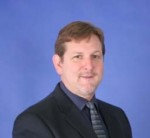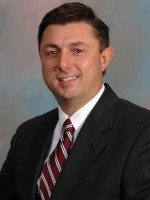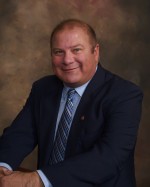Reverse Mortgage Question
 Richard Glover (rglover)
Richard Glover (rglover)
#35 ranked lender in Illinois - 69 contributions
A reverse Mortgage gives you access to the equity in your home without having to make a monthly payment. For most seniors the situation is that they are "house rich" and "cash poor." The biggest asset is the equity in the home. The Government became involved in this program in 1989 to HELP people be able to "age in place." The amount you qualify for is based on the value of your home and your age (or age of youngest borrower, 62 and older). The common rule of thumb is (age-10) will give you a rough estimation of the amount you could access. For example, a 70 year old senior with a $210K home will qualify for anywhere between 112K and 128 K with the standard programs. If you would like a lower cost option, HUD created the "saver" program. In exchange for less money, they will eliminate the up front Mortgage Insurance Premium. This lowers the cost which in a lot of cases winds up being the biggest barrier. The very unique aspect about a HECM is that when you do the "credit line" option the unused portion grows at a rate equal to the total interest rate you pay on the amount you use. This gives it an "annuity-like" feature where your available funds can grow to exceed even the value of your home over time. It works out to be a great way to make sure that you don't run out of money in retirement. Under this format, you can arrange to get funds in any way: set payment spread out over the rest of your life, set payment for a specified period of time, lump sum in any amount up to the amount of available funds, or you can leave the money in there and watch it grow for when you are older and may need it most. The fixed rate option only offers a "lump sum" pay out. This it typically best used when paying of a first mortgage and you need the maximum available funds to eliminate that mortgage and payment.There are no required monthly payments but if you choose to make payments you can. You are responsible for taxes and insurance and regular maintenance of the home. You still own your home and can sell it at any time if you like but most people do this because they want to stay in their home. You are not selling your house, it is still yours! There is no recourse. This means that if you do wind up owing more than the value of your home when you die, nobody is on the hook for those funds including your heirs or your estate. They will sell the house and if there is money left over, it goes to the family, if money is owed, the insurance you paid for covers the loss. The exception would be if they wanted to keep the house, then they have to pay the entire balance in full. There are ways to manage this if that is the case. Regarding the Home Value Limit of $625,500. This is a temporary adjustment to the actual value limit of $417K and is most likley going to revert back to this level on 9/28/2011 so if you have a higher value home and are considering this product, be mindful of this change.Please contact me if you would like significant educational materials with no obligation.Thank you,Richard GloverChicagoland's Leading Expert on the Reverse Mortgage
 Ken Baltes (kbaltes)
Ken Baltes (kbaltes)
#16 ranked lender in North Carolina - 242 contributions
The answer comes from Reversemortgage.org: The Home Equity Conversion Mortgage (HECM) is the oldest and most popular reverse mortgage product. Available since 1989, HECMs are insured by the federal government through the Federal Housing Administration (FHA), a part of the U.S. Department of Housing and Urban Development. The amount of available proceeds you can qualify for under the HECM program depends on your age, appraised home value, and current interest rates. The older you are, and the more valuable your home (and the less you owe on your home), the more funds you qualify for. The maximum loan limit is $625,500. Simply put, if your home is worth more than $625,500, the amount of equity you are eligible to receive will be based on $625,500. If your home is worth less, then the loan amount will be based on the lower appraised home value. Many of the upfront fees associated with the HECM are capped by FHA. Currently, you pay a mortgage insurance premium (MIP) equal to 2 percent of the maximum claim amount (the value of the home or $625,500, whichever is less), plus an annual premium thereafter equal to 0.5 percent of the loan balance. The MIP is paid directly to FHA in exchange for guaranteeing the loan. The MIP guarantees that if the company managing your account - commonly called the loan "servicer" - goes out of business, the government will step in and make sure you have continued access to your loan funds. Furthermore, the MIP guarantees that you will never owe more than the value of your home when the HECM must be repaid. Under the HECM program, which accounts for most reverse mortgages made in the U.S., the origination fee equals 2% on the initial $200,000 of maximum claim amount (lesser of the home value or county lending limit) and 1% on the balance thereafter with a cap of $6,000. In addition to these two primary fees, you will also pay other standard closing costs associated with getting a mortgage, including title insurance, attorneys fees, recording taxes, etc. I hope this helps,Ken
 Eddie Sexton (esexton)
Eddie Sexton (esexton)
#7 ranked lender in Kentucky - 54 contributions
I'd be glad to discuss this with you if you like. The easiest way to understand a reverse mortgage is to look at it as if it is like a regular mortgage and instead of you making payments and the loan going down, the interest is added to the balance each month. You can stay there for the rest of your life and never have to make a payment.
 Roger Farah (RogerFarah)
Roger Farah (RogerFarah)
#320 ranked lender in California - 8 contributions
HI Kent:A reverse mortgage is a special type of home loan that lets you convert a portion of the equity in your home into cash. The equity that built up over years of home mortgage payments can be paid to you. But unlike a traditional home equity loan or second mortgage, no repayment is required until the borrower(s) no longer use the home as their principal residence or fail to meet the obligations of the mortgage. You can also use a HECM to purchase a primary residence if you are able to use cash on hand to pay the difference between the HECM proceeds and the sales price plus closing costs for the property you are purchasing.Please call me with specific questions and I am happy to help you.Roger FarahMission Hills Mortgage Bankerswww.mhmb.com/rfarah(707) 303-2914 - Direct
Ask our community a question.
